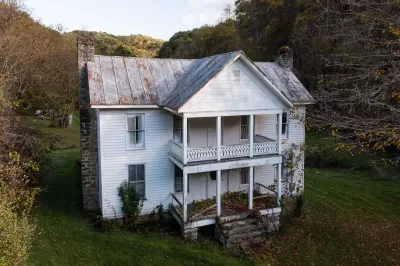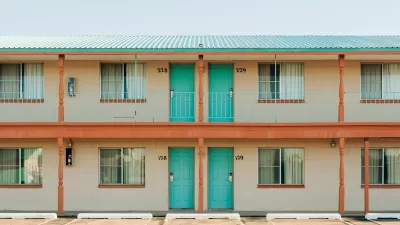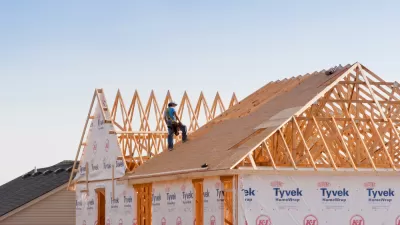The Center for Community Progress made recommendations for tax reform in West Virginia to address vacancy. Guided by CCP's suggestions, the state auditor’s office has passed two laws to change its tax sales process and keep properties in use.

West Virginia is addressing its vacancy epidemic head-on.
The state—which has one of the highest vacancy rates in the country—recently passed new regulations to help alleviate some of the negative effects vacant properties have on communities. The policies aim to help keep communities from losing properties to speculators; give neighbors, cities, and land banks an advantage in purchasing unsold property; and allow struggling homeowners to use payment plans to manage their delinquent taxes.
Senate Bill 548, which passed in June, is making a lot of buyers who purchase property at tax sales nervous, says Christal Perry, the state’s assistant director of land. When homeowners fail to pay their property taxes, the delinquent property can eventually go to a tax sale, where bidders can purchase it. The new bill requires that bidders join a registry before entering a tax sale. The registry gives officials an opportunity to examine whether a bidder has a history of mis-using property, including previous code violations or delinquent property taxes. Bidders who have these histories will no longer be able to participate in a tax sale.
LLCs can only participate after they register with the West Virginia Secretary of State.
According to the West Virginia State Auditor’s Office, out-of-state speculators—buyers who purchase property with the intent of making a profit—often buy property during tax sales to damaging effect. The office says that these buyers have made the tax sale “a root cause of slum and blight,” allowing for vacancy to increase “with no desire to turn properties into usable living spaces.”
“If [buyers are] not going to come in and be productive purchasers of those properties, then we certainly don’t want them in here purchasing property, and leaving it worse than they came,” Perry says.
FULL STORY: Full story

Alabama: Trump Terminates Settlements for Black Communities Harmed By Raw Sewage
Trump deemed the landmark civil rights agreement “illegal DEI and environmental justice policy.”

Study: Maui’s Plan to Convert Vacation Rentals to Long-Term Housing Could Cause Nearly $1 Billion Economic Loss
The plan would reduce visitor accommodation by 25% resulting in 1,900 jobs lost.

Planetizen Federal Action Tracker
A weekly monitor of how Trump’s orders and actions are impacting planners and planning in America.

Wind Energy on the Rise Despite Federal Policy Reversal
The Trump administration is revoking federal support for renewable energy, but demand for new projects continues unabated.

Passengers Flock to Caltrain After Electrification
The new electric trains are running faster and more reliably, leading to strong ridership growth on the Bay Area rail system.

Texas Churches Rally Behind ‘Yes in God’s Back Yard’ Legislation
Religious leaders want the state to reduce zoning regulations to streamline leasing church-owned land to housing developers.
Urban Design for Planners 1: Software Tools
This six-course series explores essential urban design concepts using open source software and equips planners with the tools they need to participate fully in the urban design process.
Planning for Universal Design
Learn the tools for implementing Universal Design in planning regulations.
Caltrans
Smith Gee Studio
Institute for Housing and Urban Development Studies (IHS)
City of Grandview
Harvard GSD Executive Education
Toledo-Lucas County Plan Commissions
Salt Lake City
NYU Wagner Graduate School of Public Service





























